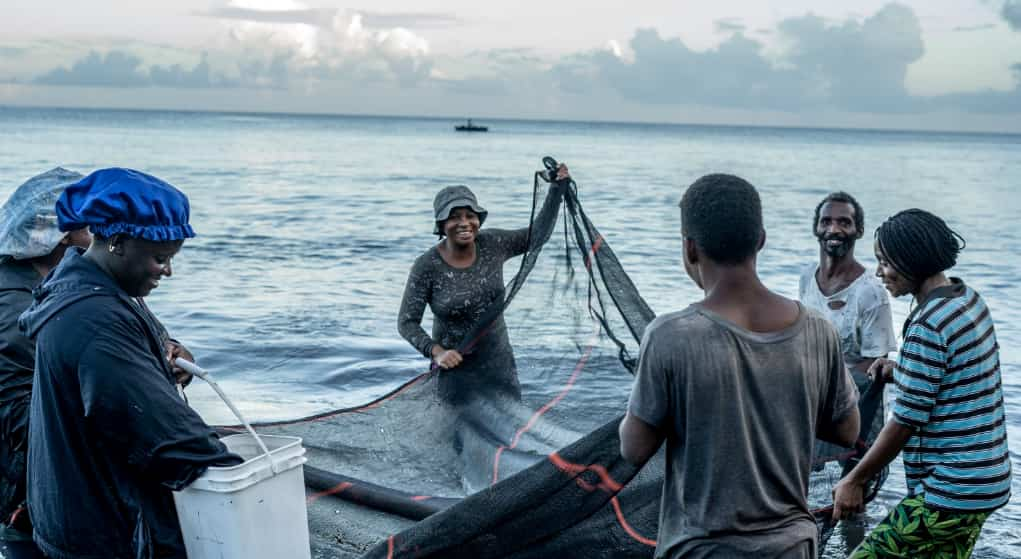Grenada among nations hit by US Seafood Import Ban starting Jan 2026
In an official release, the agency announced stricter export rules, requiring foreign seafood to meet the same high standards as U.S.-caught products.

Grenada: The National Marine Fisheries Services, also known as NOAA Fisheries, has unveiled its plans to impose seafood export bans across 46 nations with fisheries laws that fail to meet United States’ standards for avoiding bycatch of marine mammals.
According to the information, this list comprises of several Caribbean nations including Grenada and Saint Lucia. NOAA Fisheries said that the fishing vessels from around half of the world’s seafood-exporting countries are not meeting ‘compatibility standards’ in accordance with the US law for avoiding the unintentional catch of dolphins, whales and other marine mammals.
In an official press release, the agency said that those nations now face stringent export restrictions while ensuring that seafood entering the US markets must follow the similar high standards as American-caught seafood.
Beginning from January 2026, 12 countries will be completely barred from exporting seafood to the US markets including Benin, Gambia, Grenada, Haiti, Guinea, Iran, Namibia, Russia, New Caledonia, Saint Lucia, Togo as well as Venezuela. Another 34 countries including significant exporters such as China, Chile, Brazil, Indonesia, Mexico, Vietnam and the Philippines will see some of their seafood products banned from the US markets.
The department reportedly evaluated around 2500 different commercial fisheries across 135 nations.
Following the announcement, the fishermen across Grenada are fearing and questing the development. With many questions still unanswered about the us government's decision to ban seafood exports from Grenada, local fishermen are expressing serious concerns.
They are questioning why the ban was imposed and worried about the impact it will have on their livelihoods when it takes effect on January 1, 2026. The fishermen are calling for a resolution to the matter before the end of 2025.
One of the fishers questioned, “This situation has gotten really bad. Our local fishing companies used to sell to buyers overseas, but now that’s stopped. We want to know why. We’ve always exported the freshest fish, so why can’t we ship it anymore?”
He added that somebody needs to secure market first and also new buyers somewhere else. “Somebody needs to secure a market first. We need to find new buyers somewhere else. If we bring all the fish here, where are we going to sell it? The local market isn’t big enough. If we cut it up and sell it locally, and then authorities say there’s a problem, what do we do with the rest of the catch?” he further added.
Author Profile
Monika Walker is a senior journalist specializing in regional and international politics, offering in-depth analysis on governance, diplomacy, and key global developments. With a degree in International Journalism, she is dedicated to amplifying underrepresented voices through factual reporting. She also covers world news across every genre, providing readers with balanced and timely insights that connect the Caribbean to global conversations.
Latest
- Antigua: Randy Baltimore unveils 3-pillar agenda as St Phili...
-
Trinidad and Tobago Carnival 2026 drives whopping 13% surge... -
Guyana: 70-year-old patient on suicide watch dies after jump... -
50th CARICOM Meeting: Leaders retreat to Nevis for candid ta... -
Guyana: Man dies after allegedly stabbing wife in domestic d...









